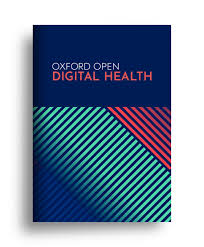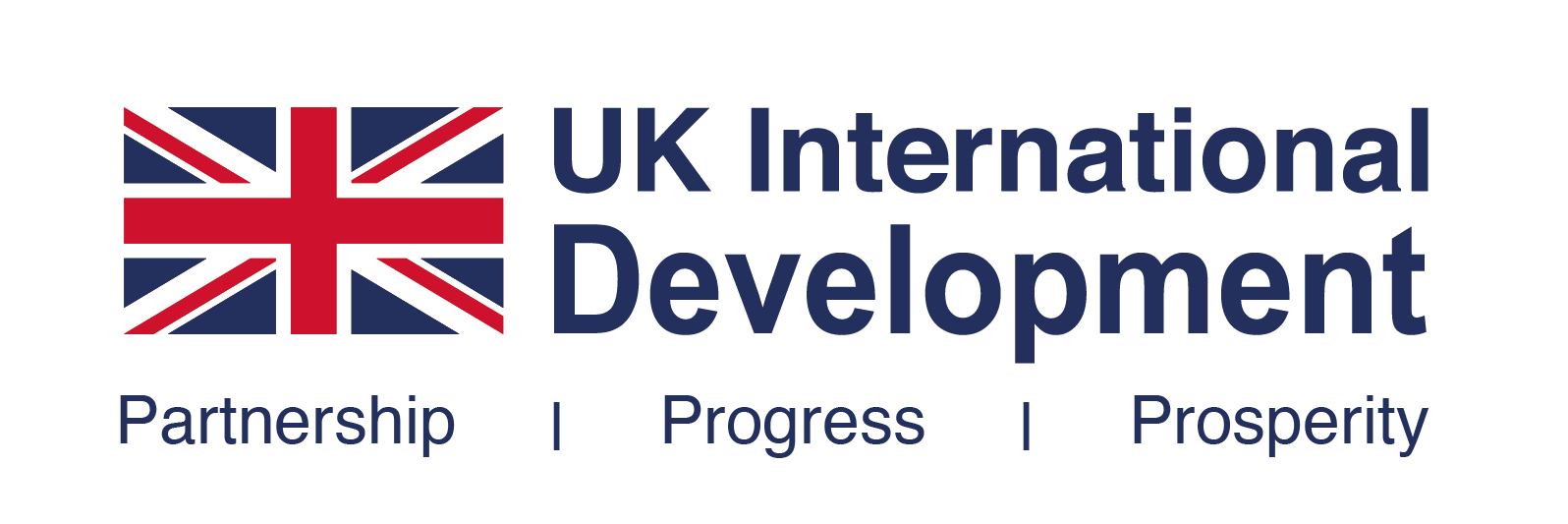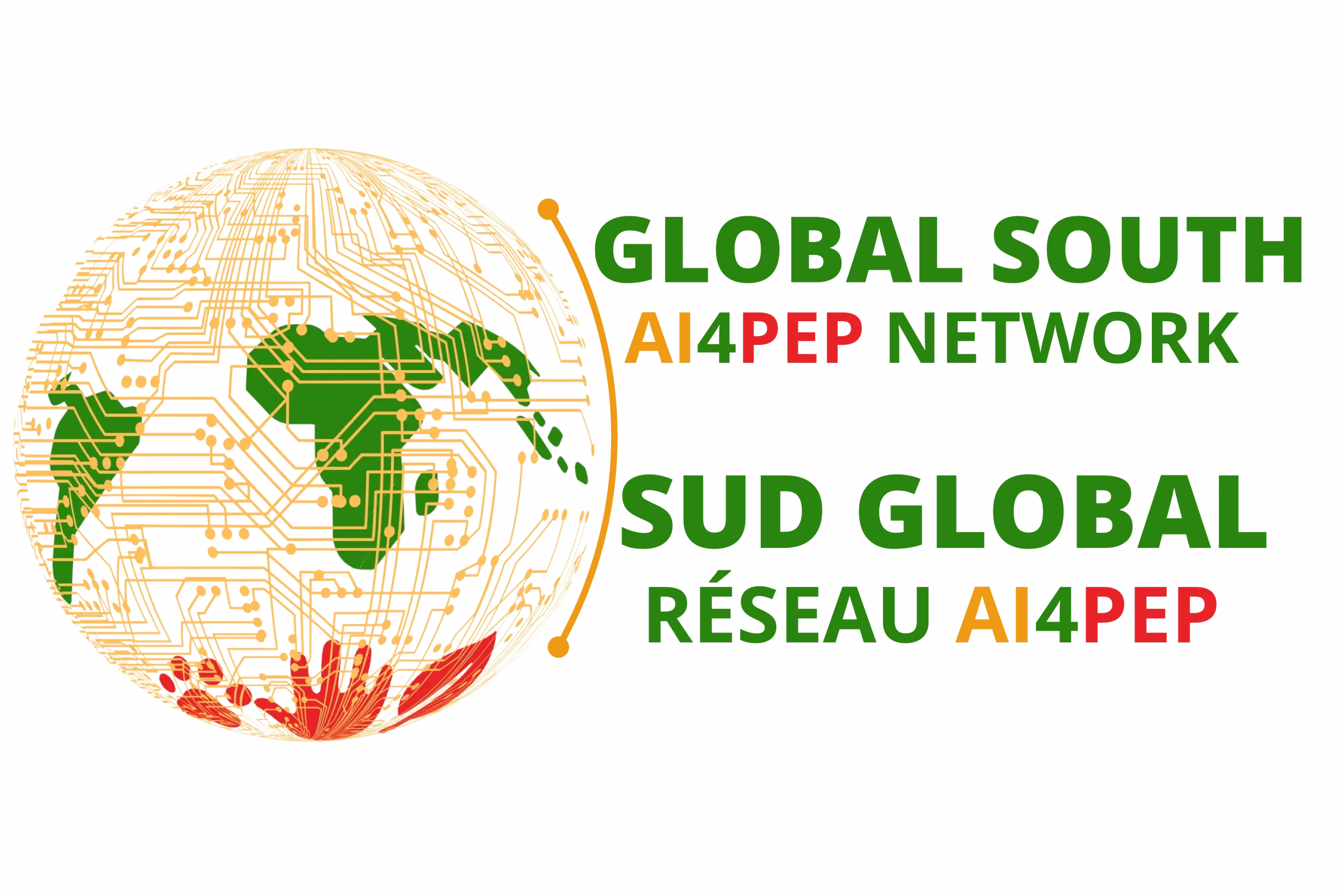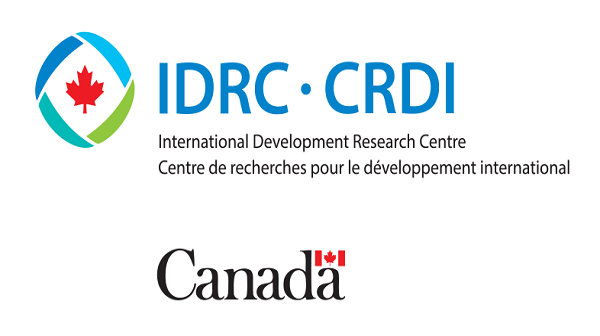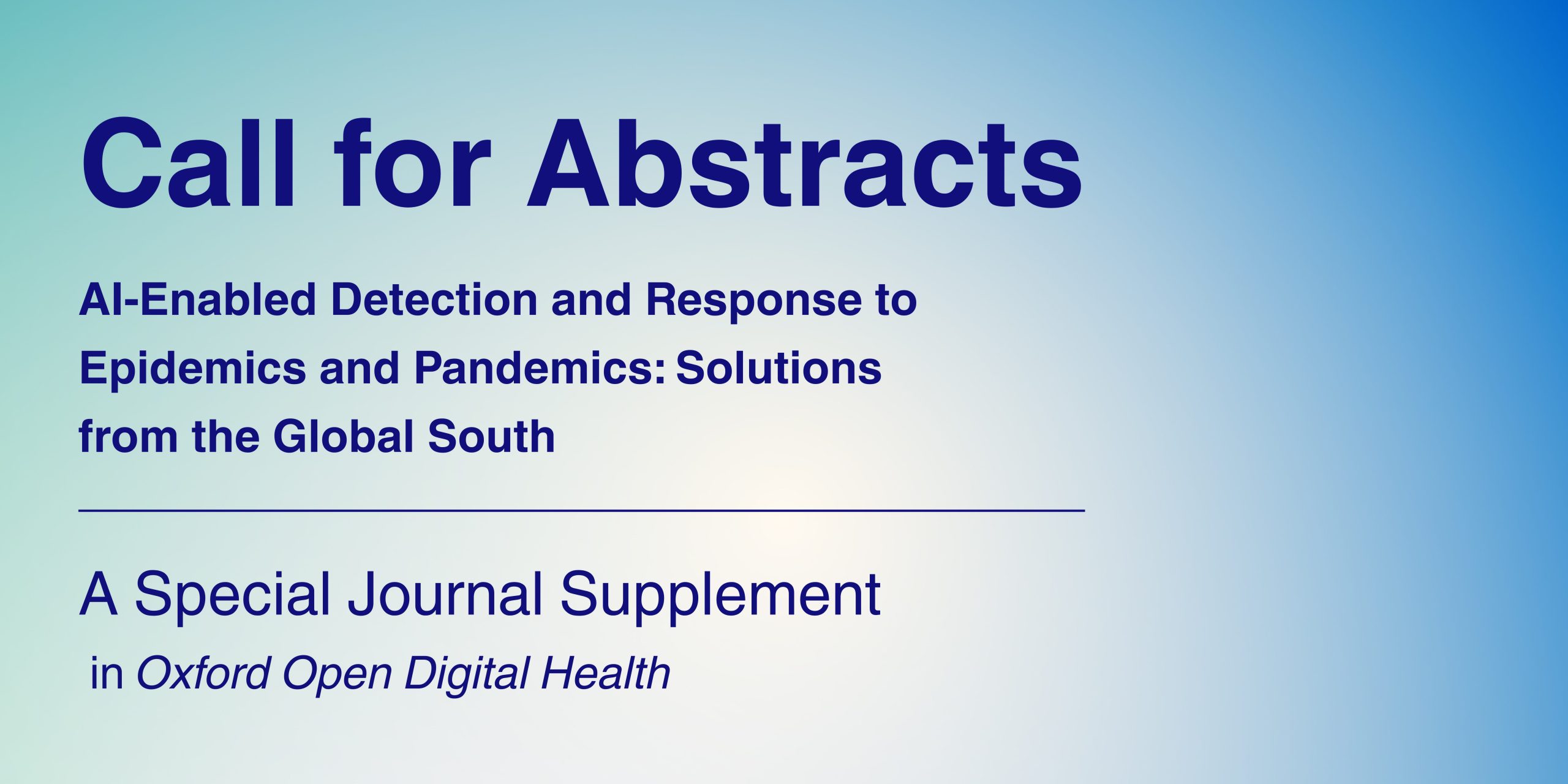
Call for abstracts is now open!
Oxford Open Digital Health, a peer-reviewed open-access journal from Oxford University Press, in partnership with the AI4PEP, IDRC, and FCDO, is pleased to launch this closed call for abstracts. This call is exclusively open to the AI4PEP family.
The special supplement will highlight responsible, locally grounded AI innovations and practical solutions for epidemic and pandemic prevention, preparedness, and response from across the Global South. We are seeking submissions that reflect diverse perspectives, including gender, disability, and inclusion, and center lived experiences, data realities, and policy challenges in Africa, Asia, Latin America, and the Middle East and North Africa.
We anticipate publishing 20 papers across three thematic areas, including real-world case studies, comparative analyses, and forward-looking contributions to guide future AI efforts in health systems strengthening. This supplement is meant to capture empirical and tested Global South solutions, comparative analysis and forward-looking insights; it is not meant to package theoretical, speculative, assumptive or anecdotal approaches or results.
Thematic Areas
Theme 1: Case studies demonstrating practical implementation in healthcare
This theme invites submissions that present real-world deployment of responsible AI technologies for epidemic or pandemic preparedness and broader health system challenges in the Global South.
Suggested components for submissions:
● Health challenge context: Clearly describe the public health problem being addressed (e.g., disease surveillance gaps, healthcare system overload, outbreak response delays), why it matters, and its impact on specific populations or health outcomes.
● AI intervention: Detail the type of AI solution implemented—machine learning, computer vision, NLP, predictive modeling, etc.—and how it was adapted to the local context.
● Implementation environment: Explain where and how the AI solution was deployed (e.g., hospital, community, digital health platform), and what infrastructure and capacity supported its use.
● Policy and data challenges: Address challenges around regulatory environments, ethical approval, data access, interoperability, or limited digital infrastructure.
● Global South leadership: Emphasize how the innovation or deployment was led by researchers, communities, or institutions in the Global South.
● Equity and inclusion: Showcase how the intervention considered gender, disability, language, or socio-economic barriers.
● Outcomes: Provide evidence of effectiveness (quantitative or qualitative), user feedback, improved health outcomes, or lessons learned for scale-up.
Theme 2: Synthesis on cross-cutting issues
This theme focuses on comparative studies that analyze experiences, lessons, or models across two or more countries or regions within the Global South. Each subtopic below provides a lens for such comparative exploration.
The subtopics below can be mixed and matched by authors based on the evidence gaps they wish to fill:
● Community engagement: Explore frameworks, strategies, or case comparisons of how community voices were incorporated in the design, testing, and implementation of AI for health. Discuss participatory design, trust-building, co-creation, or challenges in community mobilization.
● Gender, disability, and equity: Compare how gender, disability, and other axes of marginalization were considered across different AI health interventions. What frameworks or indicators were used? What trade-offs or gaps emerged in addressing inclusivity in the AI pipeline?
● Ethics and governance: Analyze how ethical concerns and governance mechanisms were managed across different contexts—e.g., data ownership, informed consent, algorithmic transparency, or accountability structures. Highlight gaps or best practices in the Global South.
● Data challenges: Discuss common data-related barriers and enablers in AI implementation—e.g., data quality, standardization, bias, missing data, language limitations—and how they were addressed in different settings.
● Scaling AI responsibly: Examine how AI projects in different countries approached scaling—what strategies were used to expand geographic reach, integrate with national systems, or institutionalize innovations. What lessons can be shared?
● Digital literacy and AI tool adoption: Compare readiness of healthcare systems and providers to adopt AI tools. Were there digital skill gaps, mistrust, or resistance? What capacity-building efforts helped with adoption?
● Social data in AI models: Analyze how non-clinical, social determinants of health data (e.g., mobility, economic conditions, behaviors) were used in AI models for pandemic preparedness, and how this varied across settings.
● Conversational AI in healthcare: Explore how AI chatbots or voice assistants were used for public health messaging, triage, patient monitoring, etc. How effective were they in different languages, literacy levels, or trust environments?
● Climate data in AI models: Compare how AI models integrated climate variables—e.g., rainfall, temperature, air quality—to predict disease outbreaks or health impacts, especially for climate-sensitive diseases (e.g., malaria, dengue).
Theme 3: Emerging case studies – Scientific research stage
This theme features early-stage research projects that are still in development but show strong potential for real-world deployment in epidemic or pandemic preparedness. Authors should explain the problem being addressed, stage of development, expected implementation pathway, and any collaborations or community engagement initiated.
Submissions may include:
● Pilot studies or prototypes for AI-enabled tools in disease detection, outbreak prediction, or resource planning.
● Preliminary modeling work with synthetic, small-scale, or limited data.
● Lab-based AI solutions developed with future public health application in mind.
● Evidence of relevance, such as potential to address current surveillance or preparedness gaps in the Global South.
● Feasibility studies or proof-of-concept experiments tied to real-world implementation goals.
Types of Contributions
We invite abstracts for papers that are multidisciplinary in nature (e.g., public health, epidemiology, computer science, social sciences, ethics, etc.) and accessible to a general health and AI readership.
We welcome the following article types: Research articles and case studies.
More information on these article types can be found here.
Selection Criteria
Each abstract will be evaluated based on the following*:
● Relevance and fit with supplement theme (25%)
● Originality and contribution to the evidence base (20%)
● Conceptual and scientific rigor (20%)
● Attention to health equity, gender, and inclusion (20%)
● Clarity and quality of writing (15%)
* In addition to the individual merit of abstracts, when reviewing attention will be placed on the distribution of papers across the three stated themes of the supplement.
Abstract Guidelines
Word limit and format: 250 words structured abstract. Submission should include:
● Title
● Author(s) and institutional affiliation(s)
● Background and rationale
● Methods or approach
● Key results or insights
● Relevance to responsible AI and equitable health systems
Timeline
● Call for abstracts launch date: August 4, 2025
● Q&A webinar: Date and time to be confirmed (August 18, 19 or 20, 2025)
● Abstract submission deadline: September 1, 2025
● Selected abstracts invited to submit full paper: September 8, 2025
● Full paper submission: November 30, 2025
● Guest editors review papers and provide feedback: December 31, 2025
● Revised paper submission in response to comments: January 31, 2025
How to Submit
Please email your abstract to emusaon1@yorku.ca with the subject line: AI4PEP OODH Abstract Submission.
All submissions must be in English. The final supplement will include translated abstracts in French and Spanish.
Call for Abstracts (PDF)
